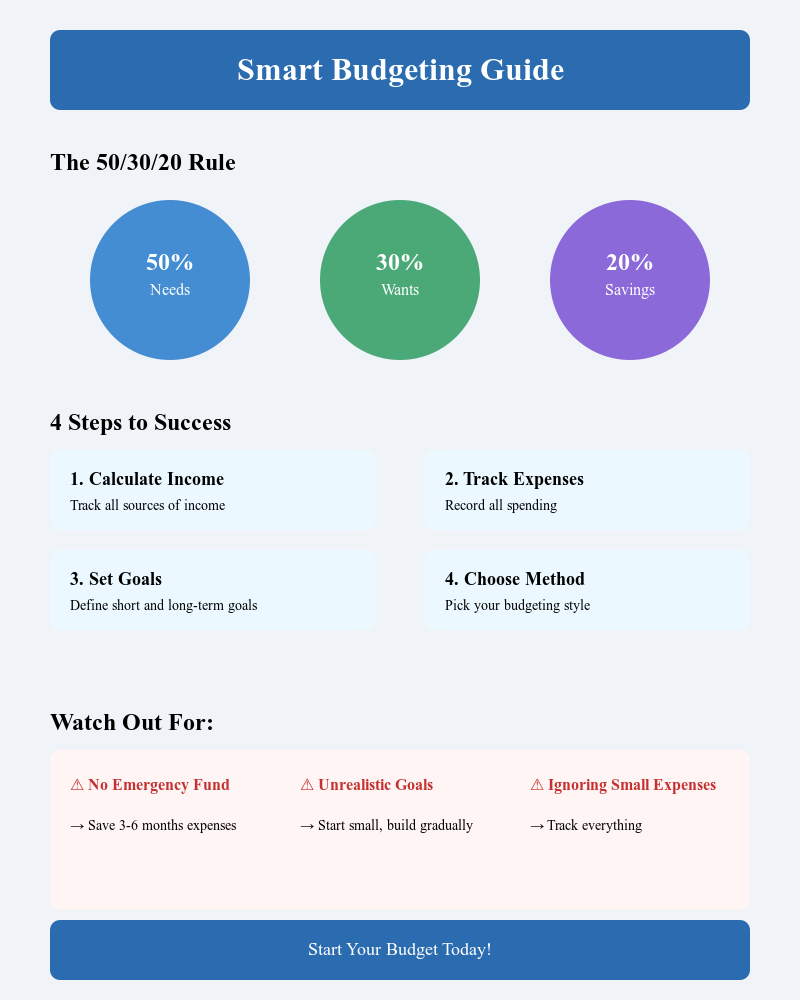Introduction: Why Effective Budgeting is Essential
Effective budgeting is the foundation of financial success, yet many struggle to create a budget that works. Without a solid plan, it’s easy to overspend, save too little, and find yourself financially unprepared for emergencies. In this guide, we’ll explore practical budgeting tips, personal budgeting strategies, and effective budgeting methods to help you take control of your finances.
Understanding the Basics of Effective Budgeting
Budgeting isn’t about restricting your spending—it’s about allocating resources wisely to align with your financial goals. A well-structured budget helps you:
- Track income and expenses
- Save consistently for future needs
- Avoid unnecessary debt
- Achieve long-term financial stability
The 50/30/20 Effective Budgeting Rule: A Proven Framework
One of the most popular budgeting methods is the 50/30/20 rule, which divides your income into three main categories:
- 50% Needs: Essentials like rent, utilities, groceries, insurance, and debt payments.
- 30% Wants: Dining out, entertainment, shopping, and luxury items.
- 20% Savings & Debt Repayment: Emergency fund, retirement contributions, and extra loan payments.
Practical Example of the 50/30/20 Rule
Scenario: You earn ₹100,000 per month after taxes.
- ₹50,000 covers rent, groceries, bills, and minimum debt payments.
- ₹30,000 goes to dining, shopping, streaming services, and travel.
- ₹20,000 is split between investments, emergency savings, and additional loan repayments.
Key Takeaway: This rule ensures financial balance while allowing for flexibility in spending.
Step-by-Step Guide to Creating an Effective Budget
1. Calculate Your Monthly Income
Include all income sources:
- Salary (after taxes)
- Freelance work
- Side hustles
- Rental income
2. Track and Categorize Your Expenses
Use a budgeting tool or spreadsheet to record expenses:
- Fixed expenses: Rent, insurance, car payments.
- Variable expenses: Groceries, dining, entertainment.
- Irregular expenses: Annual memberships, holiday shopping.
3. Set Financial Goals
Define short-term, mid-term, and long-term goals:
- Short-term: Save ₹20,000 in 3 months.
- Mid-term: Pay off a credit card within a year.
- Long-term: Buy a house in 5 years.
4. Choose a Budgeting Method That Works for You
a) Zero-Based Budgeting
Assign every rupee a purpose, ensuring no idle money in your account.
b) Envelope System
Allocate cash into different envelopes for specific expenses.
c) Pay Yourself First
Prioritize savings before spending on wants.
Best Digital Tools for Budgeting
1. YNAB (You Need a Budget)
- Best for zero-based budgeting
- Helps you plan for future expenses
2. Mint
- Automatically tracks expenses
- Provides financial insights
3. PocketGuard
- Calculates how much “free cash” you have
- Prevents overspending
4. Monarch Money
Monarch Money is a powerful personal finance app designed to help users take complete control of their financial lives. Unlike traditional budgeting tools, Monarch offers a holistic view of all your accounts, including bank accounts, credit cards, investments, and loans, all in one intuitive dashboard. The app emphasizes collaborative financial management, making it ideal for couples or families who want to track expenses together. With automated transaction categorization, goal setting, and detailed financial insights, Monarch Money simplifies budgeting while providing deep analytical tools for smarter money management. One standout feature is its ad-free experience, ensuring users get a clean, distraction-free interface focused on financial growth.
Another key advantage of Monarch Money is its high level of customization. Users can create personalized budgets, track progress towards financial goals, and even forecast their financial future based on income and spending trends. The platform also integrates seamlessly with financial advisors, allowing for professional financial planning assistance. Unlike many competitors, Monarch Money does not sell user data, reinforcing its commitment to privacy. While it requires a paid subscription, the value it delivers in financial organization and planning makes it a worthy investment for those serious about improving their financial health. With robust security features and an easy-to-navigate interface, Monarch Money stands out as one of the best personal finance apps available today.
Common Budgeting Mistakes & How to Avoid Them
Mistake #1: Not Accounting for Unexpected Expenses
Solution: Have an emergency fund of 3-6 months’ worth of expenses.
Mistake #2: Setting Unrealistic Goals
Solution: Start small—save 5-10% of income first before jumping to 20%.
Mistake #3: Ignoring Small Expenses
Solution: Track every rupee—small amounts add up over time.
Advanced Budgeting Strategies
1. Automate Savings and Investments
- Set up automatic transfers to your savings & investment accounts.
- Use SIPs (Systematic Investment Plans) for consistent stock market investment.
2. Reduce Fixed Expenses
- Refinance loans at lower interest rates.
- Negotiate rent or switch to cheaper utilities.
3. Leverage Cash-Back & Reward Programs
- Use credit cards wisely to earn cashback on necessary purchases.
Real-Life Budgeting Success Story
Case Study: How Priya Paid Off ₹5 Lakh in Debt in 2 Years
Priya, a software engineer, struggled with credit card debt. She implemented these strategies:
- Used the Snowball Method: Paid off smaller debts first for motivation.
- Reduced Non-Essentials: Cut down on dining out and luxury shopping.
- Started Freelancing: Earned an extra ₹15,000 per month.
- Automated Payments: Ensured consistent debt repayment.
By following these strategies, she became debt-free in 24 months while growing her savings.
FAQs on Effective Budgeting
1. What is the best budgeting method for beginners?
The 50/30/20 rule is ideal for beginners due to its simplicity and flexibility.
2. How can I budget if I have irregular income?
Use the base income method: Budget based on your lowest monthly earnings and save extra during high-income months.
3. How do I stick to my budget?
Use automated tools to track spending.
Set realistic goals to stay motivated.
Review your budget weekly to stay on track.
4. How much should I save for emergencies?
3-6 months of living expenses is recommended for financial security.
5. Should I prioritize saving or debt repayment?
If debt interest is above 10%, prioritize repayment first. Otherwise, balance savings and debt reduction.
Conclusion: Take Control of Your Finances Today
Creating a budget doesn’t have to be restrictive—it’s a tool to empower your financial future. Whether you use the 50/30/20 rule, zero-based budgeting, or digital tracking tools, the key is consistency and adaptability.
🚀 Start today and take charge of your financial goals!
You might also Like to Read: Why Stock Market Is Falling Today: Sensex Tanks 700 Points, Nifty Below 23,350
Visual Recap: How to Create an Effective Budget




